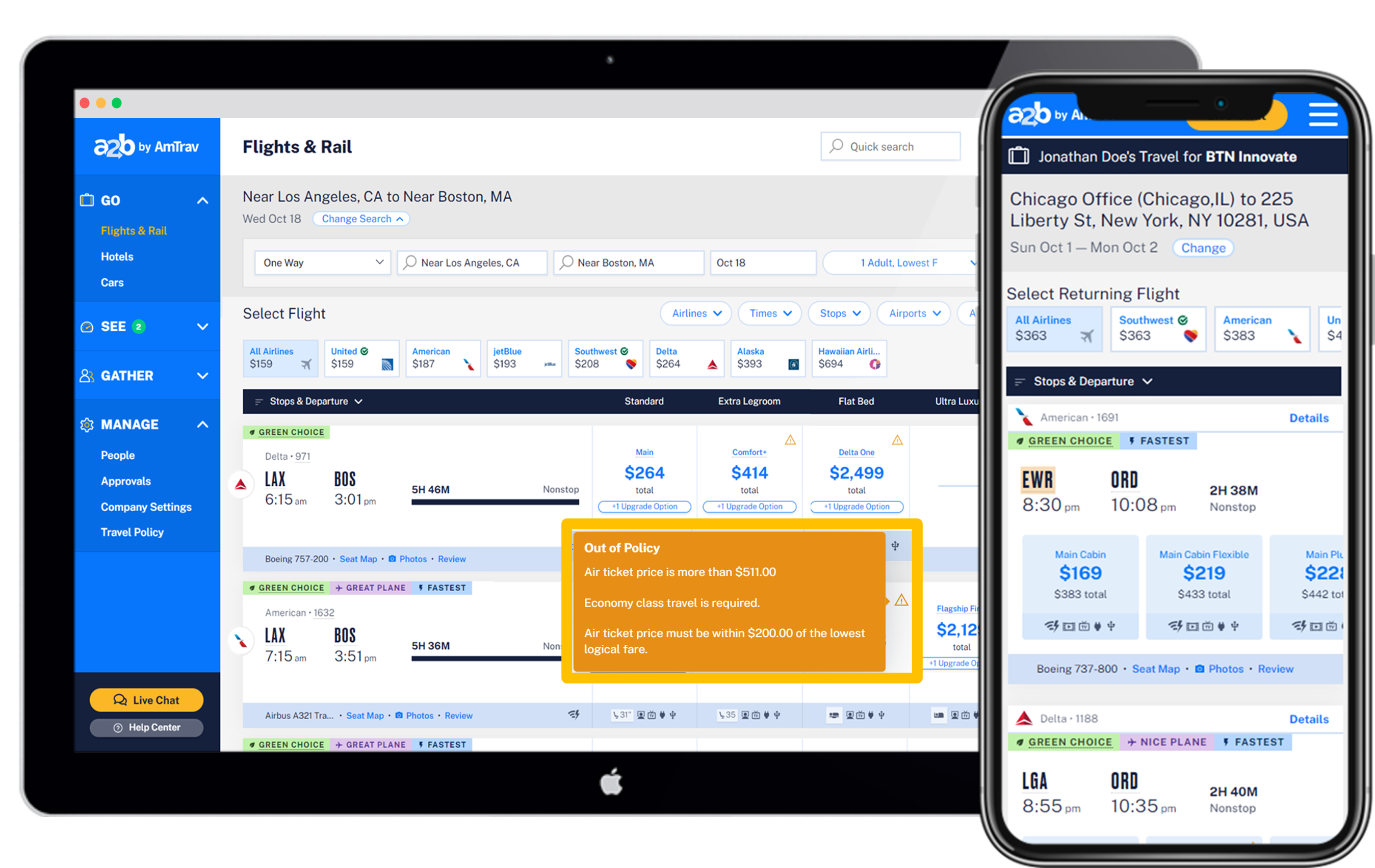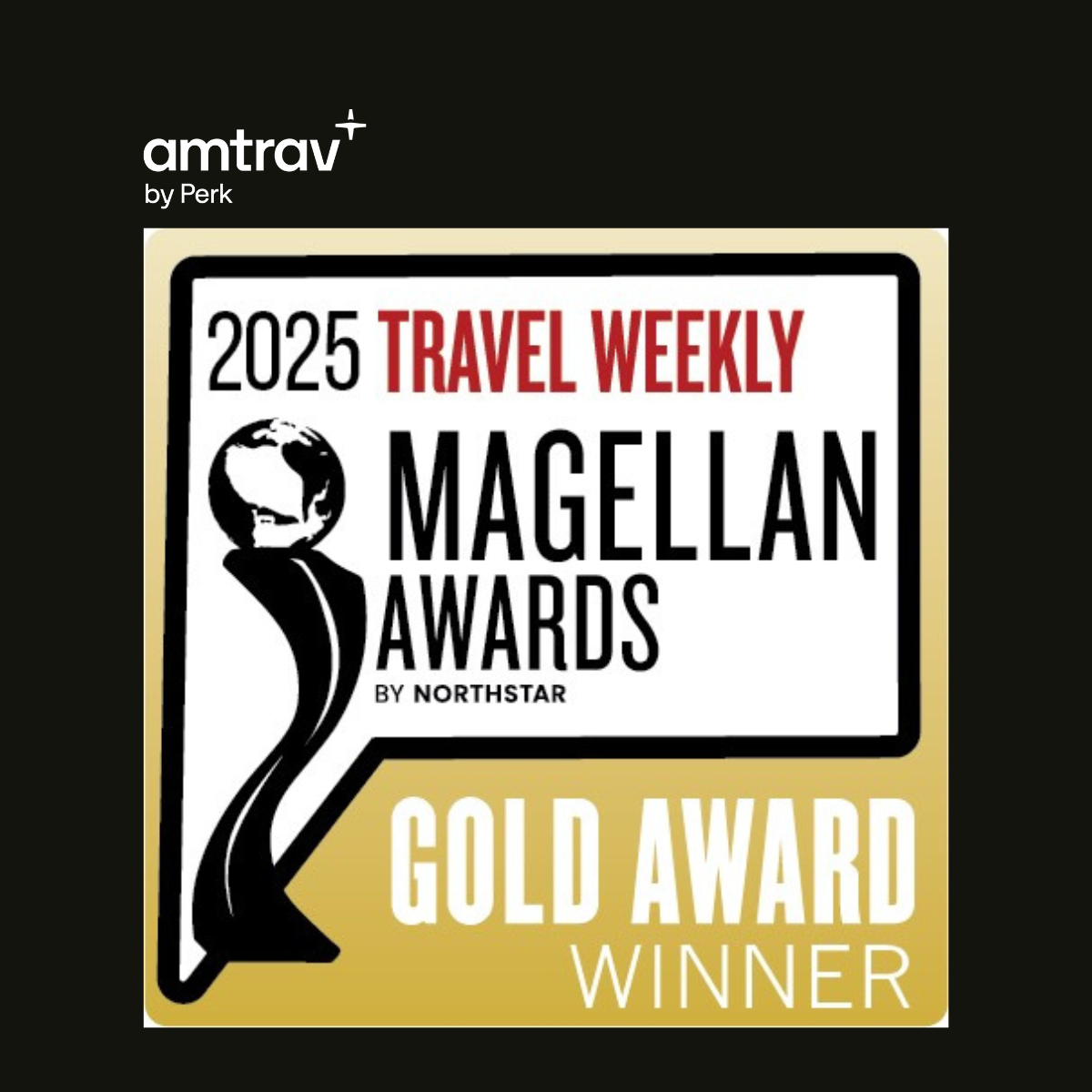Have you ever spent several hours digging through pre-trip approval requests, or a few minutes reflecting on the thousands of pre-trip approvals you've reviewed?
Yes you have?
Me too: following on our recent travel policy blog, I recently spent several hours looking through pre-trip approvals, and found a few valuable lessons – with examples too!
Travel policy discourages bad decisions (and pre-trip approvals help you catch bad decisions)
“I know that policy discourages bad decisions!” you say – but you see bookings with no travel policy applied, you see the bad decisions that travel policy discourages. Take this itinerary that was booked with no policy applied:
Traveler booked:
$987 economy (nonrefundable), about 45 days from departure
Buffalo-San Francisco 5:50 PM - 10:44 PM
San Francisco-Buffalo 8:40 PM - 7:50 AM
If you’re thinking “huh, that looks kind of expensive,” you’re right. Here’s an itinerary at the *exact same time* for $400 less:
Better alternative:
$587 economy (nonrefundable), about 45 days from departure
Buffalo-San Francisco 5:50 PM - 10:55 PM
San Francisco-Buffalo 8:40 PM - 7:50 AM
Without a lowest logical fare or fare limit applied via travel policy, the traveler isn’t explicitly guided to better options.
When AmTrav talks about travel policy we say two things. First: travel policy helps travelers find itineraries that work for them and for the company. Second, lowest logical fare control helps identify and avoid bad decisions – like spending an extra $400 to arrive 11 minutes earlier.
AmTrav’s travel policy works by telling travelers three times in the shopping flow “you’re violating policy,” by showing lower-priced alternative itineraries, and by requiring an explanation for their out-of-policy choice that their approver can use to assess their itinerary choice. Seeing these examples of what happens without a travel policy applied proves how important this travel policy feedback is for helping travelers make responsible choices.
Want another example of the bad decisions policy can prevent? Check out this one:
Traveler booked:
$1747 roundtrip in economy (nonrefundable), about 45 days from departure
Asheville-San Francisco 12:50 PM - 5:44 PM
San Francisco-Asheville 12:03 PM - 11:22 PM
FAR, FAR better alternative:
$529 roundtrip in economy (nonrefundable), about 45 days from departure
Asheville-San Francisco 12:54 PM - 5:59 PM
San Francisco-Asheville 1:37 PM - 11:20 PM
Why, traveler?! Without a lowest logical or fare cap travel policy, the traveler isn’t told “you’re spending an extra $1200 to fly Delta instead of an identical American itinerary – DON’T DO THAT!”
Travel policy makes analysis easier
When travel policy is applied in AmTrav, we share the policy compliance in approval requests and automatically record track policy compliance (including which policies were violated and who violated policy). In this example, approval was required on all bookings but no policy was applied, so that insight wasn’t given to the approver who had to decide whether to approve or not:
Traveler booked:
$1237 roundtrip in economy (nonrefundable), about 60 days from departure
Tri Cities-St. Louis 11:04 AM - 2:30 PM
St. Louis-Tri Cities 1:04 PM - 6:05 PM
Kind of expensive! But without a travel policy applied, how is the traveler told “don’t do this,” how does the approver decide whether to approve, and how does analyzing the Policy Compliance Log assess this? Here are some of the alternatives that the traveler might have taken:
Better alternative:
$650 roundtrip in economy (nonrefundable), about 60 days from departure
Tri Cities-St. Louis 2:32 PM - 5:59 PM
St. Louis-Tri Cities 2:23 PM - 8:14 PM
Another better alternative:
$547 roundtrip in economy (nonrefundable), about 60 days from departure
Tri Cities-St. Louis 6:00 AM - 8:57 AM
St. Louis-Tri-Cities 9:47 AM - 3:51 PM
Now knowing the alternatives, we can decide whether the traveler’s schedule is worth an extra $600 or not, and someone analyzing policy compliance later can better determine whether this was a reasonable choice.
Actually, this is hard
That last Tri-Cities example points to another issue: this is hard! How do we decide whether it’s worth $600 for that traveler to arrive a few hours earlier on each end? Similarly, check these examples:
Traveler booked:
$575 roundtrip in economy (nonrefundable), about 40 days from departure
Denver-Dallas 9:40 AM - 12:41 PM
Dallas-Denver 6:30 PM - 7:48 PM
Better alternative:
$365 roundtrip in economy (nonrefundable), about 40 days from departure
Denver-Dallas 10:43 AM - 1:45 PM
Dallas-Denver 6:30 PM - 7:48 PM
And:
Traveler booked:
$802 roundtrip in economy (nonrefundable), about 40 days from departure
Toronto-Dallas 8:00 AM - 10:17 PM
Dallas-Toronto 7:55 PM - 12:06 AM
Better alternative:
$662 roundtrip in economy (nonrefundable), about 40 days from departure
Toronto-Dallas 7:10 AM - 9:34 PM
Dallas-Toronto 6:45 PM - 10:48 PM
What do we do here? One of these is a $210 price difference, the other is $140. At what point is it worth telling the traveler “hey I’d like you to save some money with this other itinerary?” As a travel administrator, do you have some ground rules that you use to decide what price differences to allow and what differences to reject?
And for kicks, here’s an out-of-policy explanation from a traveler who wanted to leave an AmTrav Gather meeting six hours early: “I've been with this company for 30 years, I should be able to do whatever I want at this point, any questions I'd like to talk to you personally.” My sympathy goes to the approver on this one (they ended up approving it).
Check back later this week for one final blog post summarizing our insights on travel policy controls.
AmTrav spends a lot of time analyzing travel policy and developing our policy software, can we help you craft an effective travel policy? Reach out, we’re ready to help.

Elliott McNamee




